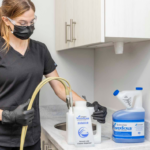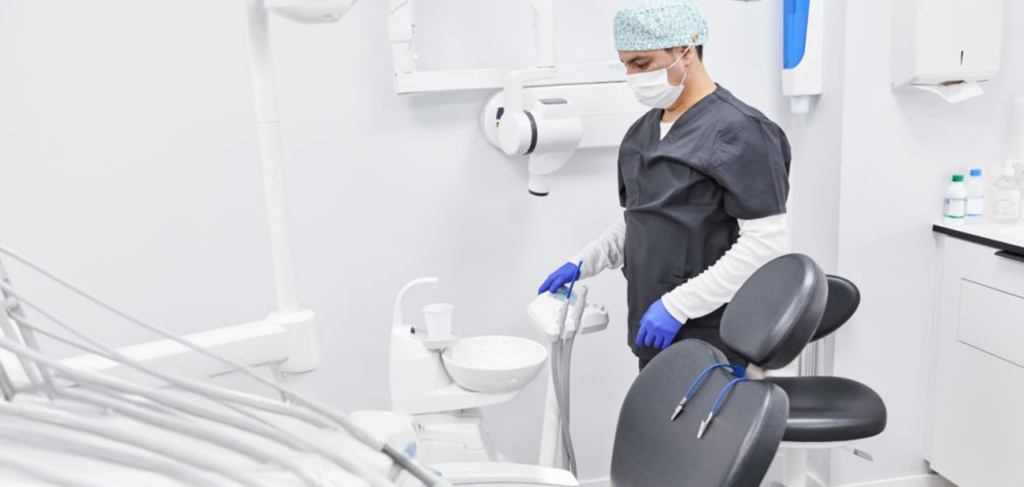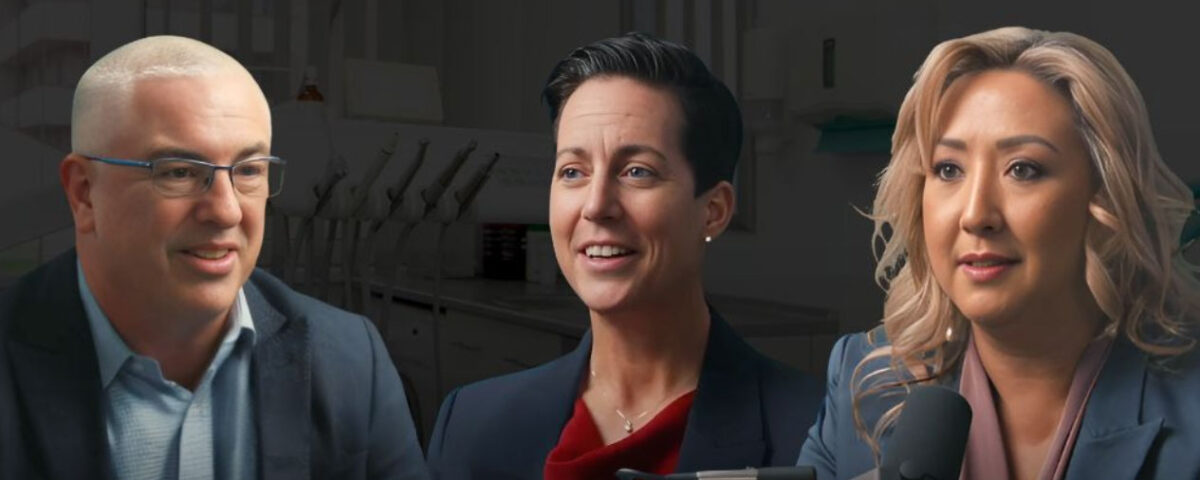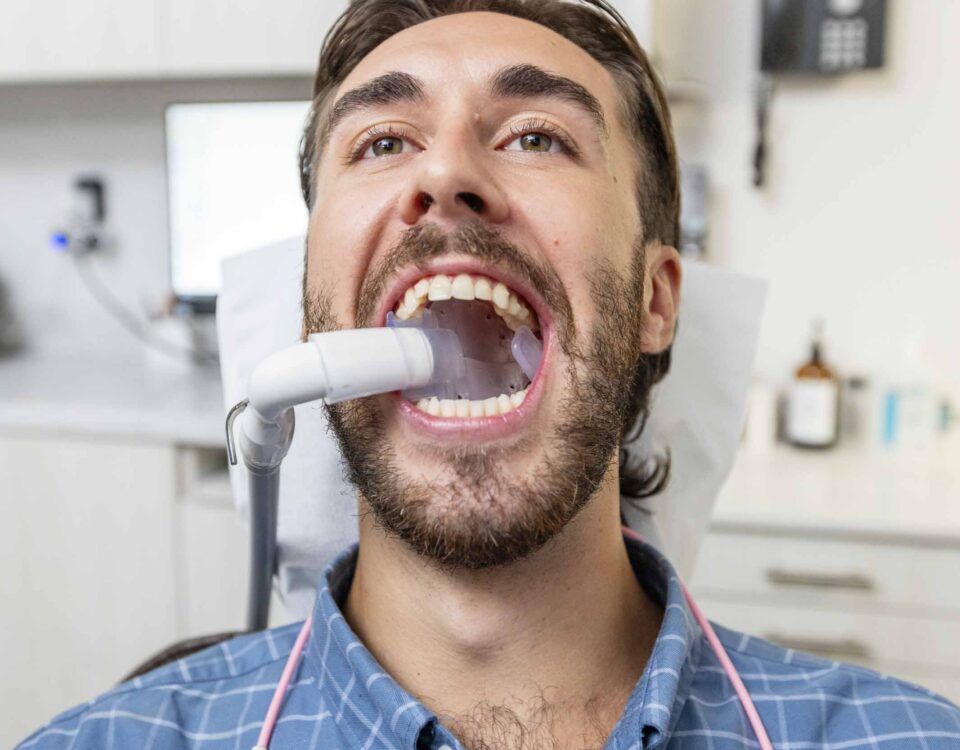- Blog
- Solmetex
- Why Dental Waterline Safety Matters: Guidelines, Testing, and What Every Dental Assistant Needs to Know
Why Dental Waterline Safety Matters: Guidelines, Testing, and What Every Dental Assistant Needs to Know

Why Georgia’s Waterline Rule Signals a National Shift in Dental Infection Control
May 22, 2025
Your Complete Guide to Vacuum Line Cleaning: Why It’s Essential for Every Dental Practice
May 29, 2025Why Dental Waterline Safety Matters: Guidelines, Testing, and What Every Dental Assistant Needs to Know
Dental waterline safety is no longer just a best practice—it’s becoming a non-negotiable requirement. With growing awareness of waterborne pathogens in dental settings, the role of dental assistants in monitoring, testing, and treating dental unit waterlines (DUWLs) is more vital than ever.
In a recent episode of the Dental Assistant Nation Podcast, Sterisil's Director of Professional Education, Chanda Chatham, and Solmetex’s VP of Marketing, Kristina Donehew, discussed why waterline safety matters, how guidelines vary, and what new legislation in Georgia means for practices nationwide.
Let’s break it all down.
The Basics: Guidelines from the CDC, ADA, and Association for Dental Safety
The Centers for Disease Control and Prevention (CDC) offers general guidance: dental teams should treat and monitor their water routinely. However, “routinely” leaves room for interpretation. That’s where the Association for Dental Safety (ADS) and other regulatory bodies come in.
- CDC: Monitor and treat DUWLs—but doesn’t specify frequency.
- ADA: Reinforces monitoring, but again, lacks specific cadence.
- ADS: Recommends testing quarterly, providing a clear and actionable routine.
Chatham stresses that while the CDC lays the groundwork, quarterly water testing should be the standard. Why? Because it provides accountability, identifies biofilm risks early, and verifies that your waterline treatment protocols are working.
Going deeper and doing that quarterly thing is the way dental practices should be going.
Chanda Chatham
Georgia's New Rule: A National Wake-Up Call
In response to two mycobacterium abscessus outbreaks—one in 2022 and another in 2023—Georgia’s Dental Board is enacting a groundbreaking rule, pending gubernatorial approval.
Key requirements in Georgia's new rule include:
- Quarterly waterline testing
- Passing the EPA standard of ≤500 CFU/mL
- Remediation if tests fail
- Testing within 30 days of plumbing/equipment changes
- Documentation of all testing and remediation efforts
This rule mirrors existing legislation in Washington State, making Georgia one of the first states to mandate quarterly testing.
I got chills when I saw it happen… it’s a game-changer.
Chanda Chatham
Why should practices in other states care? Because this sets a precedent. State dental boards across the U.S. are paying attention, and it’s only a matter of time before similar rules appear elsewhere.

Why Dental Assistants Are at the Center of This Conversation
Dental assistants are often the ones maintaining waterlines, using shocking solutions, running tests, and handling the daily protocols. Yet they may not always receive the training or recognition they deserve for this critical task.
Waterline safety is not just about patient care—it’s also about protecting the dental team. Aerosols generated during procedures can carry bacteria, and dental staff are exposed daily.
Your dental assistants are doing the hard labor… they’re the champions of water safety.
Chanda Chatham
By understanding guidelines, reading manufacturer instructions (IFUs), and advocating for routine testing, dental assistants can lead the charge in maintaining a safe operatory environment.
Why You Must Read the IFUs (Even If They're Long)
IFUs (Instructions for Use) may be dense, but skipping them—or relying on social media tips—is a serious risk. Different products interact in different ways. A treatment product may not be compatible with your current shocking protocol, and misuse could compromise safety.
Some IFUs don’t talk about how their product works with others. That’s where companies like Sterisil help.
Chanda Chatham
Reading and understanding the IFUs ensures products are used correctly and safely. Companies like Sterisil offer integrated solutions— treatment, shocking, and testing —that work together for optimal results.

Why Test Your Dental Waterlines?
Here’s the million-dollar question: why test at all?
Testing tells you:
- Whether your water treatment protocol is effective
- If biofilm is under control
- When it’s time to shock or adjust your routine
Think of waterline testing like a dental check-up. You brush and floss (like treating your water), but you still go in for a cleaning and exam (the test) to catch anything early.
If you pass the test, great! If not, you adjust. It’s all about maintenance, not perfection.
Chanda Chatham
Testing isn’t about punishment — it’s about prevention and cost control. Routine testing avoids larger failures and reduces the need for labor-intensive remediation.
We’ve developed an easy to follow protocol that helps our customers pass more tests, which is really what they want to do at the end of the day.
Kristina Donehew
The Bottom Line: Stay Proactive, Not Reactive
Biofilm isn’t going away—it’s a chronic threat in dental waterlines. But failure isn’t the enemy; inaction is. With proper maintenance, testing, and training, every practice can achieve compliant, safe waterlines that protect patients and staff.
Dental assistants have the power to lead the charge. With resources, support, and education from companies like Sterisil, you don’t have to tackle this alone.







